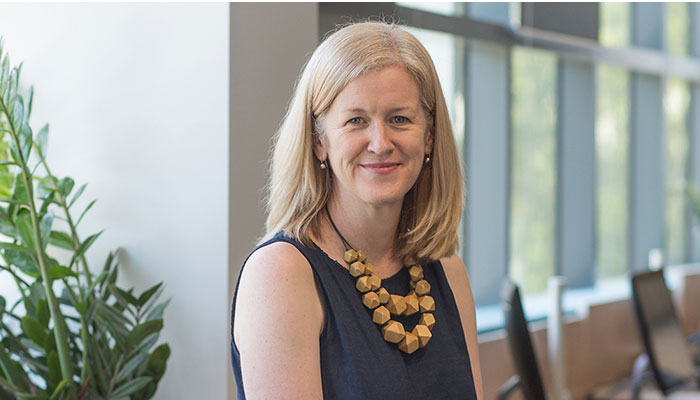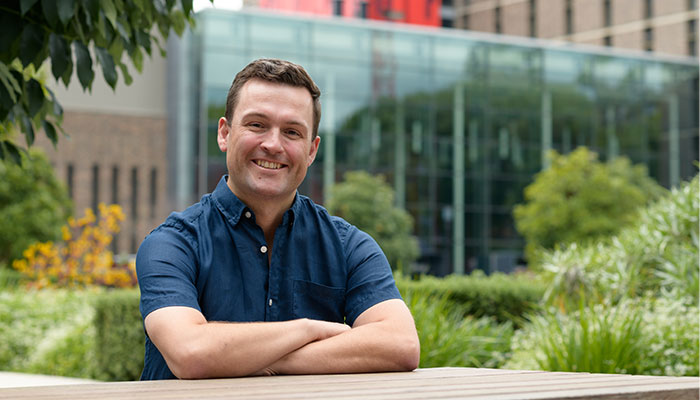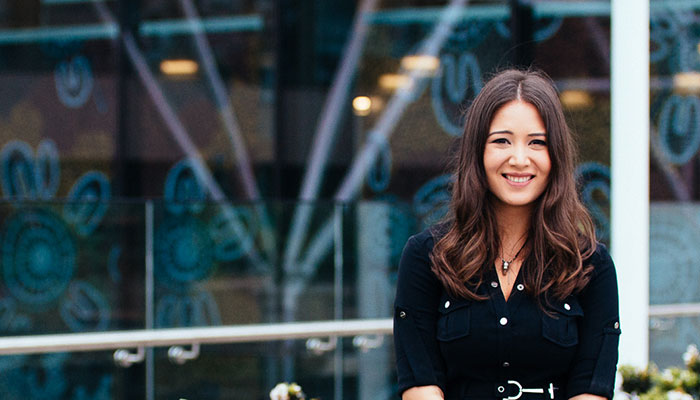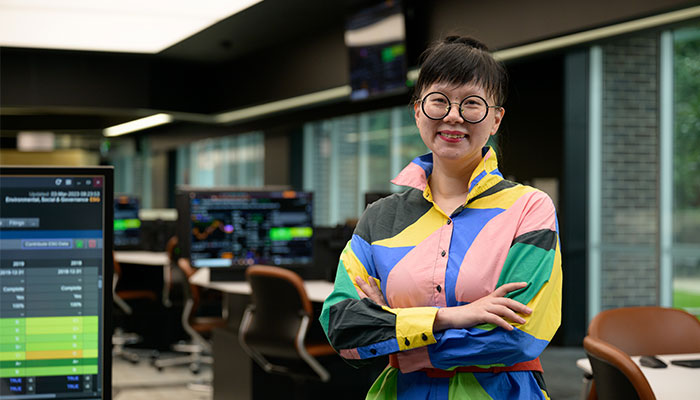Teacher: Dr Michelle Arrow is a Professor at the Department of History and Archaeology and Vice-President of the Australian Historical Association.

Popular: Her students describer Dr Michelle Arrow, pictured, as enthusiastic and supportive. Image credit: Jesse Taylor.
Gold stars: Michelle joined Macquarie University in 2004, after working at ABC-TV as a presenter on the history series, Rewind. She won an Australian Learning and Teaching Council Citation in 2010 for an ‘outstanding contribution to student learning’ for her work teaching Australian history. She is the author of three books; her latest book, The Seventies: The personal, the political and the making of modern Australia, won the 2020 Ernest Scott Prize for Australian History.
How Michelle’s students describe her: Enthusiastic, supportive, teller of daggy jokes.
What Michelle says:
My approach to teaching centres on creating a learning environment where students can experiment, relax, and feel confident learning new skills. I teach three units: a history of popular culture in post-war Australia and the United States, one examining the ways that history is depicted in film and television, and one on culture and citizenship in Australian history.
I give lots of positive feedback in class, and I’m really proud of the fact that many students tell me they enjoy their tutorials and feel their class contributions are valued.
I like to work on practicing historical skills, like analysing primary sources together. Students in my units also create their own research projects, and I’m always delighted at the range and diversity of topics they devise to research each year.
I often do small-group activities where the emphasis is on students working with each other, and I’m a big fan of daggy icebreaker activities like bingo. I also make students play memory games in the first few weeks of semester so that I can learn their names. I give lots of positive feedback in class, and I’m really proud of the fact that many students tell me they enjoy their tutorials and feel their class contributions are valued.
History gives students a valuable framework. It helps them to understand contemporary society, politics, and culture, which is why I’m so passionate about teaching it. Not only does knowledge of history help orient us in the world, but it provides students with a set of skills – analysis of primary sources, the ability to deconstruct rhetoric and to make arguments – which are useful not just for careers, but also for good citizenship.
My units also focus on the ways that the kind of everyday culture that students consume communicates messages about power and politics. Understanding the ways that this worked in the past helps them see the ways that the culture they consume works the same way today.
I tried to bring compassion to my teaching during Covid. It was such a difficult time for so many of our students, and I tried to ensure that weekly Zoom classes were an enjoyable space and offered some distraction from the grim circumstances we all found ourselves in.
Teaching feeds my endless curiosity about the past. Teaching is a fantastic way to learn about new things, and being able to take students on that journey with you is such a privilege. The thing I love most about teaching is the buzz you get from teaching a great class of engaged, enthusiastic and curious students.
I would like my students to view me as… approachable, encouraging and passionate about my subject.
The perfect student is… someone who is curious about the past, excited about their learning and who works to help create a collaborative learning environment in class. There’s nothing like watching a student work hard and succeed – it’s a wonderful feeling!



